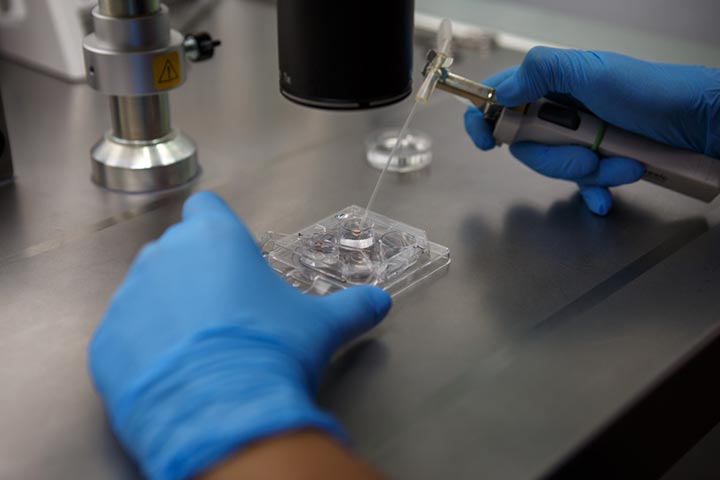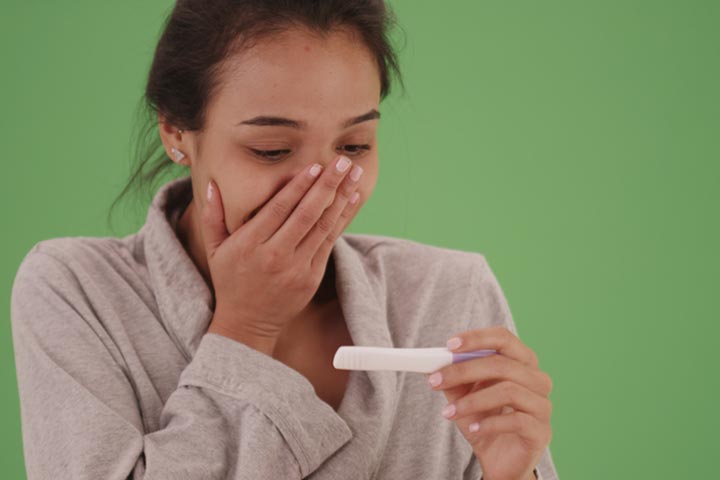
Image: Shutterstock
If you’re a woman who has crossed the age of 25 years, you would have probably heard people around you asking you questions about when you’re planning to “settle down”. People around you somehow tend to forget that they have to mind their own business. They bombard you with questions, concerns, and advice about how you’re getting older and have to think about your “ticking biological clock”. You might want to throw a brick on their faces (JK or are we?) every time you hear something like this because you have other priorities rather than making a baby right now.
But, the real question is, is there some truth in the matter? After a certain age, your chances of getting pregnant reduces (that doesn’t mean it’s impossible). However, if you’re not ready to have a baby but want to ensure that you can get pregnant later, you could freeze your eggs. Read this article to find out everything there is to know about freezing your eggs.
What Does It Mean?
Freezing eggs is a method that preserves your eggs externally so you can reproduce even after your prime reproductive age. The eggs (oocytes) are extracted from a woman, frozen, and stored at a suitable temperature to preserve your reproductive potential (1).
When Should You Consider Freezing Your Eggs?
Egg freezing might be an option for those women who wish to get pregnant in their lifetime but are not ready right now. Here are a few reasons when you should consider egg freezing:
- You Have A Health Condition That Affects Your Fertility
If you have autoimmune diseases like lupus or sickle cell anemia, you can consider freezing your eggs.
- You Are Undergoing Treatment That Could Affect Your Fertility
Certain medical treatments like radiation therapy or chemotherapy can harm your fertility. Freezing your eggs before the treatment may help you have biological children later on.
- You Are Simply Not Ready
Several women wish to embrace motherhood later on in life but are not ready when they are younger. They can freeze their eggs young and get pregnant when they are ready.
How Do You Use The Frozen Eggs Later On?
When a woman is ready for pregnancy, she can use the frozen eggs with sperm from a partner or a donor. The cryopreserved eggs are placed in a warming solution and observed. Once it de-freezes to a specific temperature, a single sperm is directly injected into the egg. The fertilized eggs are placed in a culture to grow until the embryos are ready to be transferred into the uterus. It typically occurs 3-5 days after fertilization and can be transferred into a surrogate mother if needed (2).
What Are The Risks Of Freezing Eggs?
Like with every procedure, egg freezing comes with its own risks. Here are some of them (3):
- Egg Retrieval Complications
Ovarian hyperstimulation syndrome caused by injectable fertility drugs may lead to swollen ovaries or painful ovulation soon after (in rare cases). Signs to look out for are bloating, nausea, abdominal pain, and diarrhea.
- Emotional Risks
Freezing your eggs gives you the hope of being a mother in the future, but there is no guarantee of success.
What Are The Chances Of A Successful Pregnancy While Using Frozen Eggs?
When you want to use your frozen eggs, they’ll be thawed, fertilized in a sperm lab, and implanted into a uterus (yours or a surrogate’s). The chances of pregnancy after implantation is roughly around 30-60% (about 4-12% per oocyte), depending on your age at the time of egg freezing. The older you are when you freeze your eggs, the lower your chances of giving birth in the future (4).
Now that you know everything there is to know about freezing eggs, is this something you would consider? Fix an appointment with your doctor and figure out if egg freezing is the best option for you! We hope this article helped you. Share it with your friends and family to spread the knowledge of egg freezing, so they don’t have to worry about biological clocks ticking!

















